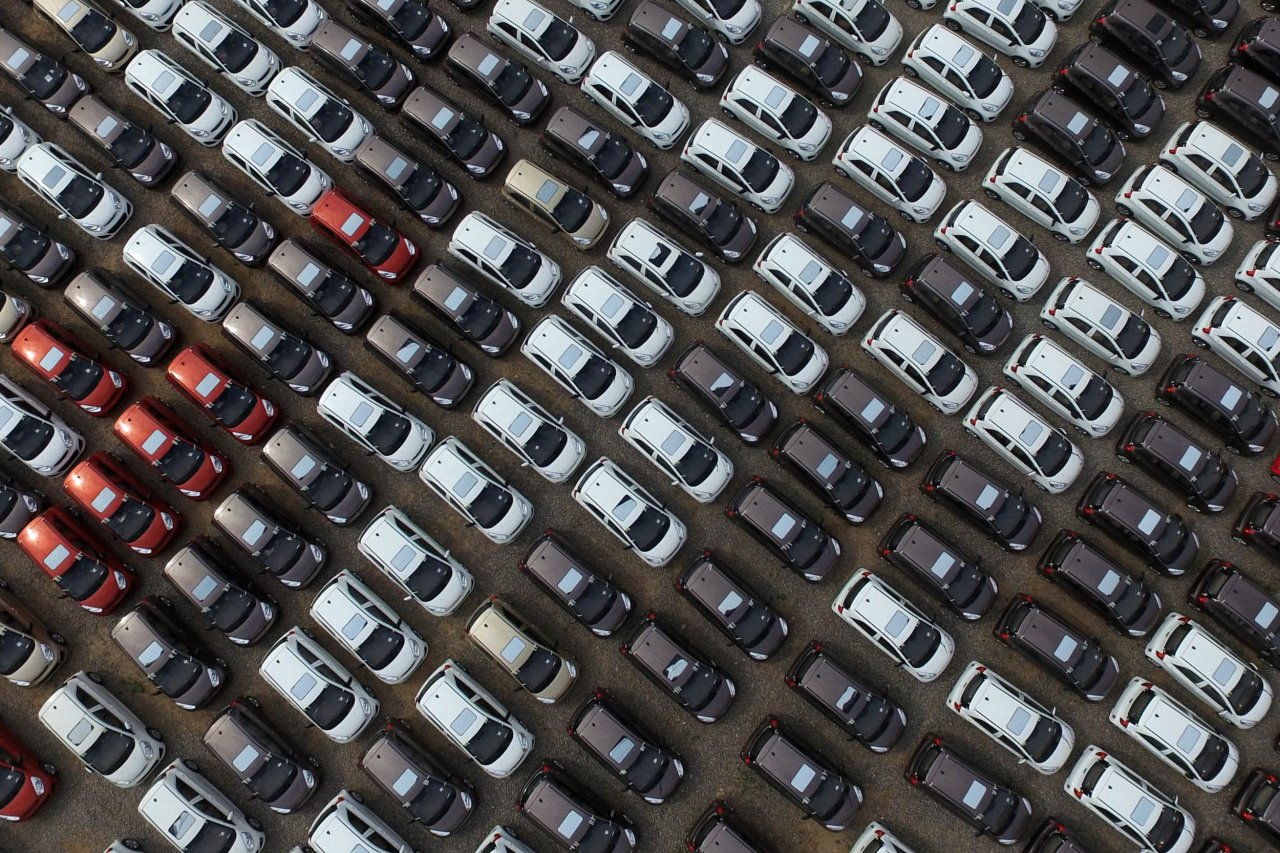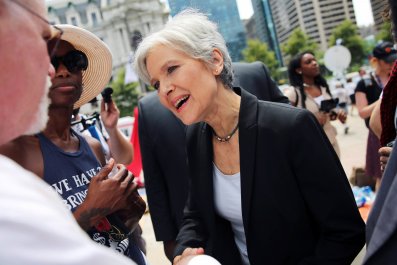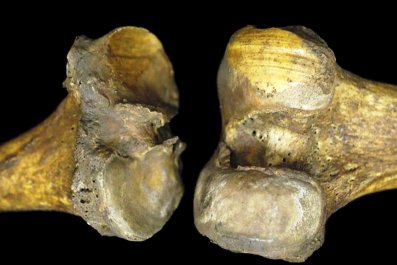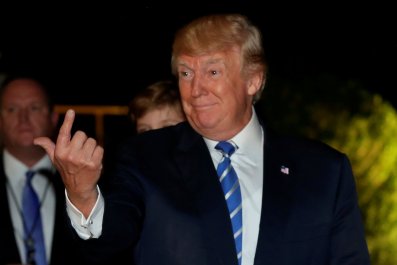Steve Bannon may be gone, but some of his ideas could live beyond his short time in the White House—namely, his provocative views on trade with China. The instant reaction when President Donald Trump fired his much-maligned chief strategist was that Bannon and his allies had been vanquished. The victors, many assumed, were those like Gary Cohn, the head of Trump's National Economic Council, who don't want to disrupt the status quo with China, fearing that Beijing wouldn't help the U.S. stymie North Korea's nukes program, among other issues.
But the so-called globalists haven't won yet. In what effectively became his exit interview, Bannon told The American Prospect in August that there is no realistic military option when it comes to the North. That undercut the administration's public position ("Everything's on the table''), but it also happens to be true. Bannon then shocked everyone with his stance on trade. "We're at economic war with China," he said. "It's in all their literature. They're not shy about saying what they're doing. One of us is going to be a hegemon in 25 or 30 years, and it's gonna be them if we go down this path."
The rhetoric was overheated, but Bannon the bomb thrower—unquestionably better suited to run Breitbart News (again) than he was to run the West Wing—is not entirely wrong. Set aside the word war and that much becomes clear. In their literature and elsewhere, the Chinese say they are intent on surpassing the United States as the world's leading economic power. And at the highest levels of the ruling Communist Party, its leaders have given considerable thought about how to accomplish it.
Consider the Made in China 2025 program, which Beijing announced in 2015. In less than eight years, the ruling Communist Party wants China to be a world leader in advanced information technology, new energy vehicles, automated machine tools, aerospace and a host of other advanced industries.
Those industries are vital. They will drive innovation, create millions of good-paying jobs and make the countries that dominate them the most economically competitive in the world.
By dint of its population alone, China always seemed destined to become the world's largest economy. It has 1.3 billion people, compared with 325 million in the U.S. But having this many people doesn't mean China will become the world's dominant economy. As the 2025 plan illustrates, however, that's Beijing's aim. In the industries it's targeting, China wants companies to produce 40 percent of the core components and materials in the country's manufacturing chain by 2020, and 70 percent by 2025. Many economists and foreign business executives believe those figures are ludicrously ambitious. But if Beijing reaches its goal, the global economy, and who makes its rules, will look radically different from how it does today.
China's plans shouldn't surprise anyone. Just ask Michael Pillsbury, a former Defense Department official and the author of The Hundred-Year Marathon: China's Secret Strategy to Replace America as the Global Superpower. His book that draws largely from documents published in Chinese, as well as his own meetings and interactions with Beijing officials. In one passage, Pillsbury relates how a prominent Chinese defector told him about how the Chinese government thinks about the country's economic rise. Senior cadres must attend strategy sessions at the party's Central Committee School in downtown Beijing, she told him. The faculty used six books to explain how the U.S. expanded over a century and a half to become the world's dominant economic superpower.
China was aping some of the methods, the defector explained to Pillsbury, and accelerating the process considerably: "The U.S. strategies examined included the protection of the domestic market, financial subsidies of domestic companies and export promotion." In other words, America was doing a lot of the things China does now.
This isn't a heretical misreading of history, analysts say. "Our first treasury secretary, Alexander Hamilton, laid out some basic rules that foreshadow China's policies of the last couple of decades," says James McGregor, the China CEO of APCO, a consulting company. "In his 1791 report to Congress, Hamilton proposed protective tariffs, import bans, subsidies for encouraged industries, export bans on key raw materials, prizes and patents for inventions, the regulation of product standards and the development of infrastructure for finance and transportation. This basic blueprint lasted in the U.S. for about the next 150 years."
The global economic rules—which, Beijing points out, it had no role in writing— attempt to constrain some of those tactics, with varying degrees of success. But will Trump do more to stop China's rise? He was harsh on Beijing during the 2016 presidential campaign, then met Chinese President Xi Jinping at Mar-a-Lago this spring and had a bit of a bromance, saying he would back off on trade in return for help in reining in North Korea. But he doesn't believe that help has been forthcoming, and he is once again amping up the pressure on trade. The U.S. has issued sanctions against a couple of Chinese companies doing business with Pyongyang. And on August 14, Trump announced an "investigation" into China's theft of intellectual property.
Do such moves portend a tougher American line on China? The conventional view of Bannon's ouster is no, because the "globalists" are now on top in Trump-land. But that conclusion could be premature. Trump's trade representative, Robert Lighthizer, worked in the Reagan administration in a similar role. He's been a trade lawyer ever since, and he's argued that going easy on China because we want help on bigger issues was foolish; it downplays the economic damage caused by Beijing's trade practices. Plus, China doesn't actually do much to stop the North from developing nukes.
In his gut and in his head, Trump likes those arguments. Bannon may be gone, but in the White House the battle over China has only begun.














